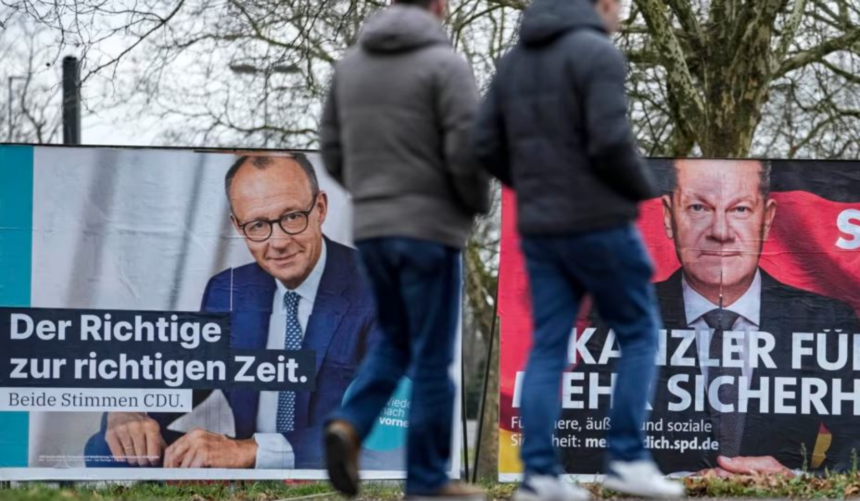Germans will head to the polls on Sunday in an election process eagerly awaited by Brussels, as many officials hope that Berlin will quickly return to its key role in European Union politics, as the European bloc faces a range of crises.
In addition to concerns over economic growth and increasing competition, the EU has been hit by threats from U.S. President Donald Trump regarding trade wars and the neglect of European leaders in attempts to end the war in Ukraine.
“Sometimes we fear German leadership. However, it is hard to live without it,” said a European diplomat to AFP.
Uncertainty in Germany has been a continuation of political turmoil in France, where President Emmanuel Macron appointed his fourth prime minister in a year.
The Franco-German engine, considered the most deserving for EU progress, “has not been able to work” and make “big decisions” in a period “when it is more necessary than ever,” said Yann Wernert, an analyst at the Jacques Delors Institute.
“We are not seeing much commitment from Germany in the current EU legislature,” added another diplomat.
It seems that others have filled the vacuum.
Polish Prime Minister Donald Tusk, whose country is currently holding the EU Presidency, has urged Brussels to do more to confront Russia, while Italian Prime Minister Giorgia Meloni has focused on migration issues.
However, analysts believe the absence has been noticeable.
“Can the EU act without Germany and France? In an emergency, it might be possible, but it’s better to act with France and Germany,” said another diplomat, as reported by REL.
Germany will hold early elections on February 23, following the collapse of Chancellor Olaf Scholz’s three-party coalition.
The conservative CDU/CSU alliance, with candidate Friedrich Merz, is leading in the polls.







